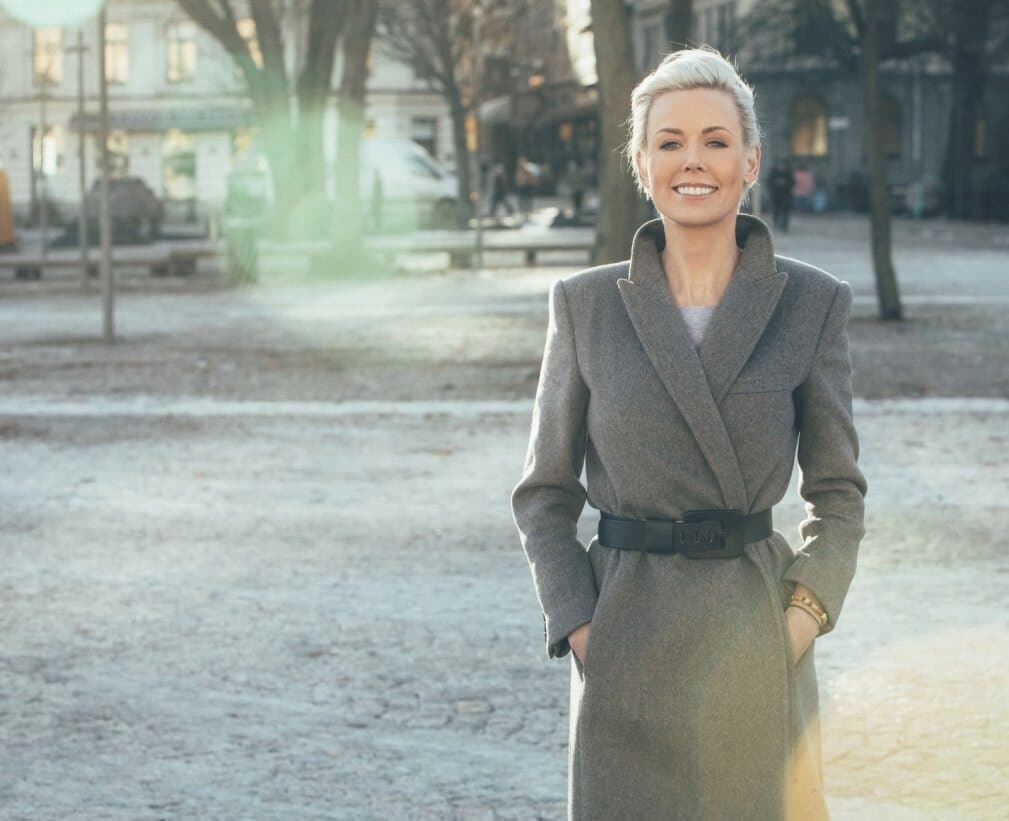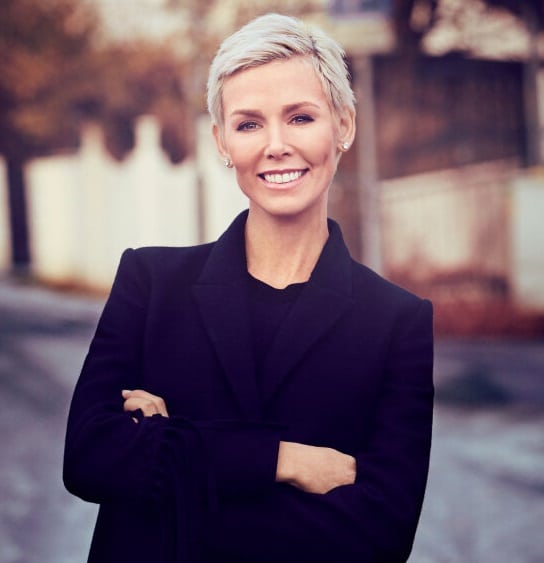United in a mission to end all forms of malnutrition by 2030, the Scaling Up Nutrition (SUN) Movement is an initiative led by 66 countries and 4 Indian States. Norwegian non-profit organization EAT has the ambition to reform the global food system. They both have a common factor: Gunhild A Stordalen. April 7th is World Health Day.
The SUN Movement works to improve nutrition for all people, everywhere, under the lead of 22 appointed global leaders who are committed to fighting malnutrition in all its forms. One of these global influencers and member of the SUN Movement Lead Group is Norwegian Gunhild A. Stordalen.
“Nobody can do everything, but everybody can do something. And if we work together, we can fix food. If you have a choice, you can change your own health and the planet’s one bite at a time”, Stordalen summarizes her main message. “American food writer Michael Pollan summarizes the science well: Eat food. Not too much. Mostly plants. And I’d add: waste none.”
Stordalen is a medical doctor the founder and executive chair of EAT, an international non-profit organization with the ambition to reform the global food system, to feed a growing global population healthy food from a healthy planet. In 2019 she was the recipient of the UN Foundation “Global Leadership Award” and in 2021 she was appointed to a leadership position in the UN Food Systems Summit.

Photo: Unsplash/Paul Schellekens
This year’s edition of World Health Day, April 7th, is themed “My health, my right”. The theme was chosen to champion the right of everyone, everywhere to have access to quality health services, education, and information, as well as safe drinking water, clean air, good nutrition, quality housing, decent working and environmental conditions, and freedom from discrimination. UNRIC asked Gunhild A. Stordalen a few questions linked to health and nutrition.
Almost half of all humanity cannot afford a healthy diet. How can we act on this?
The fact that so many people cannot afford a healthy diet when the world produces more than enough calories to feed everyone is a disgrace to humanity, and it speaks in volumes to the shortcomings of our current food systems. Our food systems are failing people, and they are failing the planet. This is exactly what EAT is working to change. In addition to commissioning research to guide the world towards a safe, just, and healthy food system within planetary boundaries by 2050, our job as a non-profit organization is to communicate this research to the public, private sector and policymakers. This transition can help save millions of lives every year and protect the planet from the greatest threats of our generation.
When it comes to what we can do as individuals, we need to demand this shift. Those of us who can afford to make food choices, should opt for healthy plant-rich whole foods, locally and sustainably sourced and in season whenever possible. And all of us should stop wasting edible food.
Tell us more about the The Scaling Up Nutrition (SUN) Movement, what it has meant to you and the world?
SUN aims to end all forms of malnutrition by 2030 and is a movement that mobilizes collaborative action at the nation level across 66 countries, where change in reality must happen. SUN also pushes for action on nutrition at the global level and is an important actor in the food system space.
The movement has increasingly adopted a food system approach to its work and has expanded its collaboration across different sectors. I’ve been part of the Lead Group at SUN for three terms now—and Dr. Anna Lartey, their co-facilitator for the task force on coordination of civil society, is an EAT-Lancet commissioner. EAT and SUN have strong ties.
You had a leading role in the UN Food Systems Summit and you have several influential roles in boards in key positions. Can you tell us more about what it has been like to work for the UN and what impact you see that the organization has today and in the future?
It’s a great honour to work for the UN. The historic UNFSS convened the world to create an action agenda for food systems transformation and piloted a new way of organizing a UN summit, with the five action tracks being led by civil society organisations working together with UN agencies and crowdsourcing ideas and solutions, from thousands of actors including farmers, indigenous people, youth and private sector.
I genuinely believe the UN has an even more important role to play in the future. The Secretary General has been an incredible leader and advocate for systems change and is leading the charge to break down silos and work together across disciplines, sectors, and borders for the future we want, leaving no one behind. But fixing food ultimately means changing the rules of the game, so the system can reward actions that benefit people and planet, while penalizing harmful behaviours.
International cooperation including trade will be crucial, and governments have to lead. Here, the UN is in a unique position to set the agenda and orchestrate commitments and action.

Photo: Rickard L Eriksson
Food waste and sustainability are some of your core values. How can the world achieve a greater success regarding this?
Everything is connected. This was the core message from the EAT- Lancet commission: Tto achieve healthy diets for all within planetary boundaries, four big shifts must happen in parallel.
There is no one-size-fits all solution, every country is different. This means governments must align policies and develop national food systems transformation strategies that are anchored in science-based targets. Prioritising equity and inclusion is key to political viability and success, but it is also the right thing to do.
How do you see the Nordic countries evolving in this area? Do you see progress, where and how?
EAT has worked closely with the municipalities of Oslo, and particularly Copenhagen on facilitating urban food systems change. The three capital cities of Norway, Denmark, and Sweden have all committed to working towards achieving a Planetary Health Diet for all by 2030, along with 13 other major cities, through our collaboration with C40 and the Good Food Cities Accelerator. This is significant. We believe that cities have a key part to play in food system transformation.
The new Nordic Dietary Guidelines also incorporate sustainability, which is an important step in the right direction, and the Nordic Council of Ministers continue to champion this agenda. That said, the Nordics are in a prime position to not only transform—but lead the transformation process. They are among the wealthiest countries in the world, have high trust, well-functioning democracies, and great educational systems. They have no excuse to sit back and wait. And we are seeing promising sign that it will actually happen.
In the last COP, Norway committed to co-chairing the Alliance of Champions for Food Systems Transformation, a coalition of “ambitious countries determined to pave the way by taking a whole-of-government approach towards delivering “better outcomes for people, nature and climate”. We will be monitoring their progress with interest. In order to lead on this with credibility, they also need to make meaningful changes in their own backyard. It is still a huge problem in the Nordics, as with most of the rest of the world, that taxes and subsidies incentivize unsustainable and unhealthy food production. This makes it an uphill struggle for producers who want to be part of the solution.
World Health Day is celebrated annually and each year draws attention to a specific health topic of concern to people all over the world. The date of April 7th marks the anniversary of the founding of WHO in 1948.

